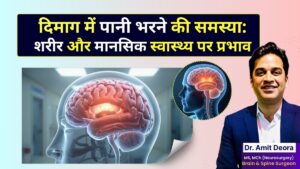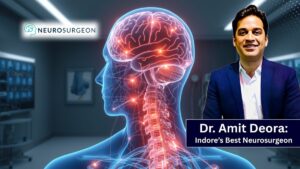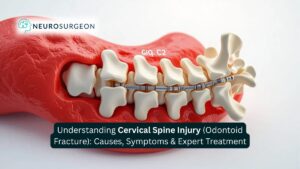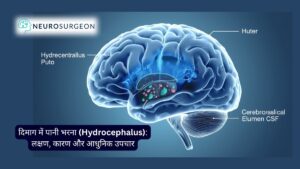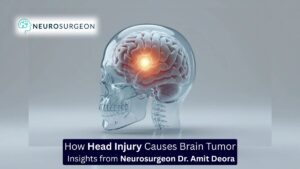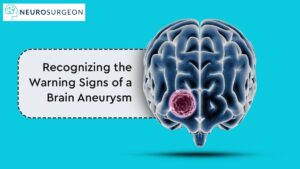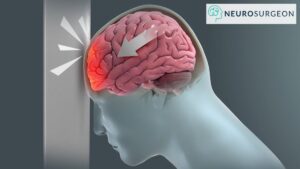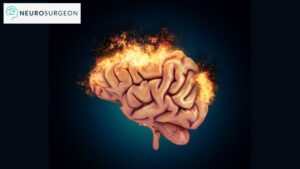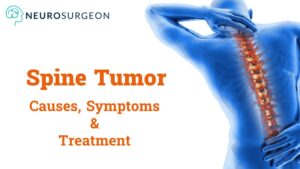What’s going on in that brain of yours? Your brain is a complex organ controlling everything from your heartbeat to your moods and memories. But things can go wrong. Several neurological disorders can disrupt your brain and change your thinking, feeling, and behavior. You’ve probably heard of some of the major ones, like Alzheimer’s disease or Parkinson’s disease.
But there are a few others you should know about. We will dive into seven neurological disorders that everyone should be aware of. Some are common, others are rare. Some start early; others strike later in life. But all highlight how crucial your brain health is to your overall well-being. So, let’s get into what you need to know about your brain and what can go wrong.
Table of Contents
ToggleBrain Stroke
A stroke occurs when blood flow to your brain is interrupted.
It only takes a few minutes of lost blood flow for brain cells to start dying. Acting fast can make the difference between life and death.
The most common signs of a stroke are
- Sudden Numbness or Weakness,
- You May Need Clarification,
- Trouble Speaking,
- or Help Understanding Speech
If someone shows these symptoms, call Neurologist in Indore right away.
To prevent strokes
- Control High Blood Pressure and High Cholesterol,
- Limit Alcohol,
- Don’t Smoke,
- Exercise, and Eat Healthy
Some risks like age, race, and family history can’t be changed, but living a balanced lifestyle can help reduce your risk of suffering a brain attack.
Headache
Ever get those pounding headaches that just won’t quit? There are a few types you should know about.
Tension Headaches
These are the most common, caused by
- Stress,
- Anxiety,
- or Muscle Strain in the Neck
You’ll feel dull pain on both sides of your head. Try over-the-counter meds, rest, and massage therapy.
Migraines
If you get severe pain, sensitivity to light/sound, nausea, or vision problems, it could be a migraine. Migraine pain usually throbs on one side and lasts 4-72 hours. See a Neurologist in Indore for prescription meds to prevent and relieve migraines.
Cluster Headaches
These cause intense pain around one eye and can wake you from sleep. Cluster headaches come in groups, lasting weeks or months, separated by pain-free periods. Oxygen therapy or prescription meds can help. See a Neurologist in Indore for proper diagnosis and treatment.
Neuropathy
Neuropathy is nerve damage that causes
- Numbness,
- Tingling,
- and Pain
Usually in your hands and feet. It can come on gradually over the years or appear suddenly. The most common cause is diabetes, but other conditions like injuries, infections, and autoimmune diseases can also trigger neuropathy.
Parkinson’s Disease
Parkinson’s disease is a progressive disorder of the nervous system that affects movement. It develops gradually, sometimes starting with a barely noticeable tremor in just one hand. But as the disease progresses, the earthquake can spread and get worse.
Sadly, there is no cure yet for Parkinson’s disease. However, research yields new treatments that can relieve symptoms and slow the progression. With the right treatment and self-care, many people with Parkinson’s can lead full, active lives.
Brain Tumor
A brain tumor is the growth of abnormal cells in the brain or central spine canal. As the tumor grows, it creates pressure on and changes the function of surrounding brain tissue.
Brain tumors are classified as
- Malignant (Cancerous)
- Benign (Non-Cancerous)
Malignant brain tumors contain cancer cells and tend to grow rapidly. Benign brain tumors grow slowly but still may be life-threatening due to their location in the brain.
The most common symptoms of a brain tumor are
- Frequent and Severe Headaches,
- Seizures,
- Memory Loss,
- and Impaired Vision
Epilepsy
Epilepsy is a neurological disorder characterized by seizures. Seizures happen when there are brief disturbances in the brain’s electrical activity. During a seizure, the brain’s nerve cells misfire, causing temporary abnormalities in sensation, movement, awareness, or behavior. Epilepsy affects about 1% of the population.
The main symptoms of epilepsy are seizures. Seizures can cause
- Convulsions,
- Loss of Consciousness,
- Abnormal Movements,
- Sensory Disturbances, and More
The frequency and severity of seizures can vary from person to person. Epilepsy is usually controlled with antiseizure medications, but for some people, surgery or other treatments may also be options.
Dementia
Dementia refers to symptoms caused by disorders that affect the brain, usually resulting in memory loss or other intellectual abilities serious enough to interfere with daily life. The most common cause of dementia is Alzheimer’s disease, which accounts for 60-80% of cases.
- Alzheimer’s disease: A progressive brain disorder that destroys memory and thinking skills. It’s the most common cause of dementia.
- Vascular dementia: Occurs due to damage to the vessels that supply blood to the brain. It’s the second most common dementia type.
- Dementia with Lewy bodies: Caused by abnormal protein deposits in the brain that disrupt cognition, movement, behavior, and mood.
- Frontotemporal dementia: A progressive disorder of the frontal and temporal lobes of the brain. It affects behavior, personality, language, and movement.
- Mixed dementia: A combination of two or more types of dementia occurring together, usually Alzheimer’s disease and vascular dementia.
- Parkinson’s disease: A progressive disorder of the nervous system that affects movement and mental functions. Dementia can develop in the later stages of Parkinson’s.
- Creutzfeldt-Jakob disease: A rare brain disorder caused by abnormal protein deposits. Rapidly progressive dementia and movement problems are common symptoms.
Sadly, dementia is currently incurable and degenerative, but early diagnosis and appropriate management can help slow the progression and maintain quality of life. The key is catching it early.
Conclusion
So there you have it: 7 important neurological disorders to understand. The human brain is an incredibly complex organ, and the effects can be devastating when things go wrong. But knowledge is power. By understanding these conditions, staying vigilant about symptoms, and seeking treatment as early as possible, we can manage or even overcome these disorders.
Your brain controls everything you think, feel, and do – so take good care of it! Keep it active, challenge it, and be on the lookout for any changes. Remember, you only have one brain – so take it seriously and stay aware of your neurological health. The life you save may be your own!



